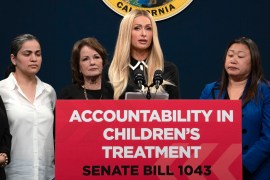A year before Healthy Pennsylvania’s rollout, Michael Harle, president and CEO of Gaudenzia, the drug and alcohol treatment center, was assured by top state Medicaid officials his clients would not see their health insurance change.
Harle has been around. So he asked for that guarantee in writing. He didn’t get it.
A high-placed executive “promised me that they would get it right,” he said.
But “they” didn’t.
 After Medicaid recipients began shifting to the new program on Dec. 1, “all hell broke loose,” Harle said. A glitch in the system covered his clients and thousands of people across Pennsylvania in need of substance-abuse and mental-health services with private insurance instead of Healthy Plus, the new program for the medically frail.
After Medicaid recipients began shifting to the new program on Dec. 1, “all hell broke loose,” Harle said. A glitch in the system covered his clients and thousands of people across Pennsylvania in need of substance-abuse and mental-health services with private insurance instead of Healthy Plus, the new program for the medically frail.
The problem is most of those private plans don’t offer addiction and mental-health treatment, and those that do have less robust benefits than Healthy Plus.
The result is thousands of people have been locked out of treatment centers, risking their lives, said Deb Beck, president of the Drug and Alcohol Service Providers Organization of Pennsylvania, a statewide coalition of treatment programs.
“The problem with addiction is you can’t wait,” she said. “Alcohol and other addictions are progressive and are always fatal illnesses if they go untreated. You can’t wait.”
In a letter sent two weeks ago to behavioral health providers, the Department of Human Services said it was working with drug and alcohol and mental-health groups to prevent interruption of service.
People shut out of care often end up in emergency rooms, jail, or on the street, Harle said. Some die. In 2011, Pennsylvania recorded more than 2,000 drug overdose deaths, ranking it seventh nationally, according to the federal government.
The lockout is also a financial burden on providers, especially smaller ones. How much of a burden is still unknown since many providers bill Medicaid a month or two after services are given.
“I suspect that, particularly for small outpatient programs that haven’t sent their bills in yet, it could be a shock,” Beck said.
Last year, Pennsylvania treated 162,000 people for substance-abuse disorders in a variety of settings. The larger programs appear to be continuing to treat patients without payments, Beck said. But the residential rehabilitation programs that serve the poor have been affected the most. They serve 25,000 people a year, and December admissions were down 10 percent to 25 percent, Beck said.
At Gaudenzia, which has 900 beds in Southeastern Pennsylvania, December admissions fell by 247.
“They really botched this up,” Harle said.
The program was a signature health effort of former Gov. Tom Corbett, who had long resisted Medicaid expansion because he deemed it unsustainable. After losing his re-election bid in November, Corbett pushed a narrower version of expansion, called Healthy Pennsylvania, which cut benefits for all Medicaid recipients beginning Jan 1.
Problems began surfacing in the second week of December. That’s when Beck started getting calls from programs about their Medicaid clients. She spoke to state officials who told her there was a glitch in the system they were trying to figure out.
“I’m guessing that whoever did the data entry didn’t understand the addiction-treatment system and how it related to Medicaid,” Beck said. “And the misunderstanding became practice.”
When treatment programs realized what was happening, they had a choice. They could stop treating patients who didn’t have Medicaid coverage or continuing helping their clients. Harle and Gaudenzia decided to keep treating people.
“We get them treated and fight about it another day,” Harle said. “What is most important to us is the client.”
Gov. Wolf, who was sworn in last week, has pledged to scrap Healthy Pennsylvania for a more traditional Medicaid expansion program.
Estelle Richman, head of Wolf’s special transition team focused on human services, said the first thing on Secretary of Human Services Theodore Dallas’ to-do list was to “fix the drug and alcohol problem.”
“At the same time, we have to make sure that the providers are going to be paid,” she said. “Forcing providers to eat large sums of money only weakens them and their ability to provide comprehensive services to their clients.”
Richman said she would be in Harrisburg this week to continue working on the transition of Medicaid expansion. And though she didn’t want to speak for Dallas, she expected he would announce a plan that would unknot the problem.
“I will tell you that within the next couple of days we will have a plan and we will be communicating back out to the counties and people like Mike [Harle] how we plan to remedy this very quickly,” Richman said.
From Harle’s vantage point, the fix is really pretty simple. “There is a system in Pennsylvania that works,” he says. “It’s called HealthChoices and has been in place since the ’90s. It has rules and a system and a common language that people understand.”







